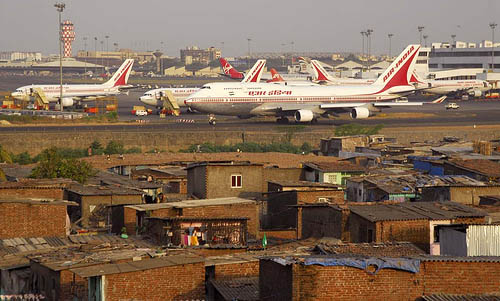By: Ravi Sinha
 Track2Realty Exclusive: The real estate has by and large welcomed the move to bring the slum redevelopment and rehabilitation projects under the ambit of Corporate Social Responsibility (CSR). It has been a wish that hat was granted even before the sector could get vocal with the wish list. It is hence no surprise that some of the adjectives that the Finance Minister’s announcement could earn have been ‘a game changer’ or ‘a corporate catalyst’ and ‘investment magnet’.
Track2Realty Exclusive: The real estate has by and large welcomed the move to bring the slum redevelopment and rehabilitation projects under the ambit of Corporate Social Responsibility (CSR). It has been a wish that hat was granted even before the sector could get vocal with the wish list. It is hence no surprise that some of the adjectives that the Finance Minister’s announcement could earn have been ‘a game changer’ or ‘a corporate catalyst’ and ‘investment magnet’.
However, the sector also reminds the past experience that suggests that many such proposed policy announcements could not make any tangible difference in this urban management and social cause. For example, when the UPA Government had made a budget announcement that affordable housing can avail External Commercial Borrowing (ECB), it was proposed for the slum redevelopment as well. But in the absence of policy guidelines thereafter the very purpose was defeated.
It is hence recommended that immediate policy guidelines are needed for CSR in slums. The developers active in this space are apprehensive that if the policy guidelines are not defined soon the proposal will meet the fate of the ECB. Analysts tracking the developments also maintain that it is the seamless policy guidelines that will define the success of CSR in slums.
Mumbai-based developers are of the opinion that the way new DCR (Development Control Rules) brought clarity for them and created a level playing field this proposed scheme also needs to do the same. Since slum redevelopment being treated as the CSR activity has more to do with the taxation and finance, big investment into this segment will elude in the absence of clear policy framework.
Some of the developers bring to the fore the issue of its misuse as well if the policies are not defined in the right context. Abhay Kumar, CMD of Grih Pravesh Buildteck categorically says that it is a two-way sword and while it can change the urban landscape of metro cities in general and Mumbai in particular, its misuse cannot be denied. He suggests the social cause part of the CSR to be ingrained through guidelines in the scheme of things.
“The moot point in the proposed scheme is that whether the CSR is applicable in the context of serving to the social cause or it is granted across the board. The government needs to define whether any project done out of slum redevelopment, including the villas & super luxury apartments, fall into CSR activity or it is just about catering to the slum dwellers and other needy people who are looking for affordable housing,” says Abhay.
Critics also point to the fact that SRA being a specialised segment of housing the CSR provision will only get a section of developers benefitted. However, Diipesh Bhagtani, Executive Director of Jaycee Homes disagrees with it. He believes listed construction companies which are hunting for prime land in city would really benefit directly because of their financial strength. But the developing companies will not have much of a disadvantage and it would be a win and win proposition.
“I am positive with the move and with this new initiative this segment will help companies like us in near future. Government should come forward and create a policy which will be sector friendly and benefit the end user too. In the context of Mumbai, a point to be taken note of is that major slum areas are in legal hurdles with BMC, land owner issues etc. The policy should cater the solution by setting up fast track courts to finish the legal matters and simplify the government procedure,” says Bhagtani.
However, it is not just Mumbai but developers across the metro cities are elated with the prospect and their only concern is that the proposal should be given more teeth by the guidelines that defines what can be done and what can not be done. Nikhil Hawelia, Managing Director of Hawelia Group agrees that Mumbai would be a litmus test for the success of this scheme. He nevertheless believes the urban landscape of the country would go for a major facelift if the scheme is made a magnet for investment.
“All the cities which are a magnet for the livelihood are today sitting on a potential time bomb and the urban management will be a chaos if it is not addressed now. Thankfully, this proposal of slum redevelopment falling into CSR gives a window of opportunity. Major corporate houses of the country would be willing to take the best of this for their taxation issues, serving to a social cause and at the same time making a great business opportunity out of it,” says Hawelia.
The analysts suggest that it would be a seamless process if the government authorities come out with the checklist in order to counter the misuse of CSR in SRA. More importantly, these check lists and guidelines are announced soon. Till then, the developers are busy with their own cost and benefit analysis assuming whether their new CSR would only be applicable if they merely replace shanties with flats or they will be allowed to provide every shanty owner a flat with an attached middle class lifestyle as well.
Some of them are even pondering over the feasibility to create a new eco system of economic opportunities out of the slum redevelopment. CSR after all is not just about giving something back to the society to the desirable extent; slum redevelopment falling into CSR is going to redefine a lot more than just urban infrastructure development.





